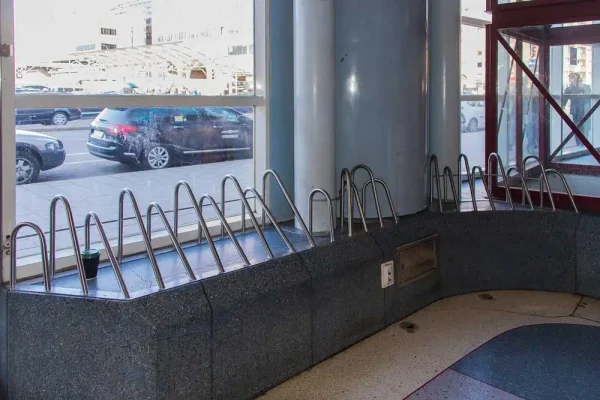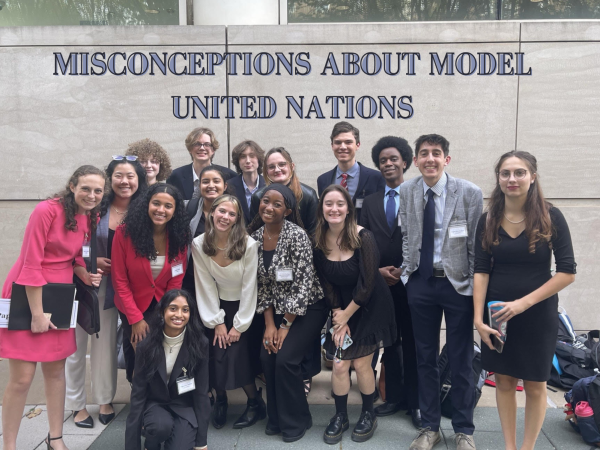Is the government shutdown worth it?
February 1, 2019
On December 22, 2018, the United States federal government found itself in a national crisis with a government shutdown. The shutdown temporarily ended January 25, 2019, due to Trump signing a bill, which allowed the government to reopen until February 15 to resolve the border control issue. However, the threat of another shutdown still looms over the United States.
Before discussing the effects of the government shutdown, one must understand the reasoning for this national crisis. The Senate, controlled mostly by the Republican party, unanimously passed an appropriations bill—a proposed law that authorizes federal funding—that did not include funding for the U.S.-Mexico border wall proposed by President Donald Trump. Analysts predicted the bill would receive approval by Trump and the Republicans, which controlled the House of Representatives. However, many of Trump’s supporters and media outlets accused him of backing out on his promise to “build a wall”—a promise Trump made in his 2016 Presidential Campaign. As a result, Trump announced he would no longer sign any appropriation bill that did not support funding for the wall, asking for approximately $5.6 billion. The House of Representatives tried to pass a new bill that supported funding, but the Senate never approved the bill. This decision constitutes the beginning of the government shutdown.
In an effort to end the government shutdown, the House of Representatives, now controlled by the Democratic party after the 2018 midterm elections, voted to approve the appropriations bill without funds for the wall. However, Trump maintains his stance on vetoing any bill that does not support funding for the wall. As a result, Republican Senate Majority Leader Mitch McConnell blocked the Senate from approving of any bills that Trump will not sign.
Because of the government shutdown, thousands of Americans risk losing access to food stamps. According to the U.S. Department of Agriculture (USDA ), 38 million Americans could potentially lose access to welfare services, such as food stamps. As the shutdown continues, the federal government’s ability to support this service decreases. The U.S. Department of Agriculture also predicts that access to food stamps will undergo temporary discontinuation come February. The USDA also predicts that uneven food distribution could happen due to staffing cuts.
Low-income Americans appear not only to not only struggle financially, they also struggle to keep their homes. According to the U.S. Department of Housing and Development (HUD), the possibility of renewing rent contracts that expired in December or will expire in January seems unlikely. Around 40,000 low-income households could risk eviction. This number will only increase if the government continues to remain shut down in March due to the General Services Administration (GSA), which sends out rent paychecks to landlords. The Federal Buildings Fund, which is the source of the GSA’s rent payments, could possibly go broke due to other closed-down federal agencies no longer paying the GSA for using its buildings.
If the shutdown continued into February, the government could risk losing their employees. Around 41,000 federal government employees, who the government recognizes as “essential,” continue to work without pay. This includes Border Patrol officers, employees of the Transportation Security Administration (TSA), members of the National Guard, and federal employees in several other fields.
According to Hydrick Thomas, TSA council president for the American Federation of Government Employees, a prolonged government shutdown would contribute even further to the possibility of employees walking out on their jobs. In the case of absenteeism, the concern continues to advance. At the U.S. Penitentiary, absenteeism increased threefold. TSA officers in Florida, Texas, and Virginia continue to call in sick, forcing airports to consolidate security lanes.
“The further this goes and the less gas money and childcare money and food money people have, it’s going to fuel the absenteeism even more,” Thomas said.
No government should enforce a shutdown due to unsolved solutions to fund border security. While Trump remains willing to negotiate to fund, Nancy Pelosi, Speaker of the House of Representatives, denies Democrats the right to negotiate. According to Pelosi, if Democrats did not negotiate with Trump, they would win against him. However, the Democrats agreed to fund 650 miles of the wall already built on the border. Throughout his presidency, Trump continues to divide the country, and the thought of unity feels bleak under the Trump administration. Now, as the country continues to struggle, Trump must find a solution to end this ongoing crisis. No matter the solution, the shutdown must end now. The people cannot struggle anymore.

















